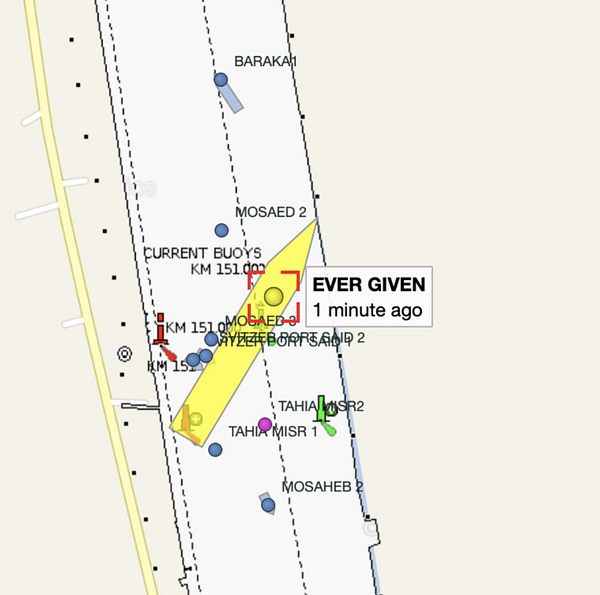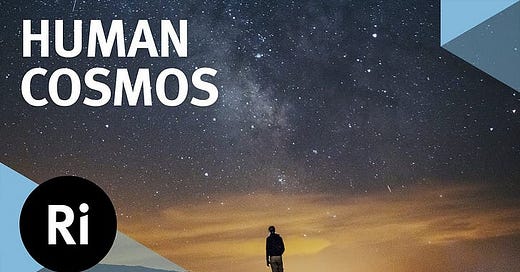The Overview - March 29, 2021
The Overview is a weekly roundup of eclectic content in-between essay newsletters & "Conversations" podcast episodes to scratch your brain's curiosity itch.
Hello Eclectic Spacewalkers,
I wish that you and your family are safe and healthy wherever you are in the world. :)
Check out the last The Overview - March 22, 2021: HERE
Get our E-Book for free by using ‘substack’: HERE
—
Below are some eclectic links for the week of March 29, 2021.
Enjoy, share, and subscribe!
Table of Contents:
Articles/Essays - London Review of Books, NoemaMag, EngelsbergIdeas, Autonomy.Work, Palladium Mag, Cam Wiese, Lee Vinsel, LOCUS mag, Vitalik Buterin, and NY Review of Books
Books - Technology as Symptom & Dream by Robert D. Romanyshyn (Non-Fiction) and The Obelisk Gate by N.K. Jemisin
Documentary - The consequences of injustice | DW Documentary
Lecture - The Human Cosmos with Jo Marchant - The Royal Institution
Paper - Tax Evasion at the Top of the Income Distribution: Theory & Evidence
Podcast - Building our Climate Futures Through Storytelling (Part 1), w/Eric Holthaus + Kim Stanley Robinson via Warm Regards podcast
TED Talk - Do we see reality as it is? | Donald Hoffman
Twittersphere - @jsrailton on the Suez Canal backup
Video - Is The Future Predetermined By Quantum Mechanics? via PBS SpaceTime
Website - Ban Surveillance Advertising
Articles/Essays
Where are the space arks? Via @LRB
“There is a temptation to view the prospect of space warfare as a product of inexorable technological advance. But there is a sense in which this view is itself outdated. Compare the rate of technological advance during the five decades between 1920 and 1970 with that of the fifty-year period that ended in 2020. The great and terrible scientific and technological inventions we associate with the present are almost all more than half a century old. The terrible pace of the mid-20th century has long since slowed. The Saturn V, built-in 1967, is still the most impressive rocket ever made.
During that axial age, humanity dreamed of ecumenopolises, of heavy industry and its by-products removed off-planet, of giant cylindrical worlds in orbit, of towers stretching into the heavens, of Dyson swarms of man-made infrastructure harvesting the full power of the Sun, of a Kardeshev II civilization capable of re-engineering the solar system. These dreams already seem absurd. In the great stagnation through which we are now living, comparatively modest projects to collect solar power in space or deposit nuclear waste into the Sun seem like grand schemes. Where are the space arks in orbit? The exploration of exoplanets in the circumstellar habitable zone?
Satellite wars over the tiny layer of space immediately above the atmosphere are evidence of a fear of decline rather than of expansionary apotheosis. If, as Deudney and others believe, the project of space exploration, and not the military state, is an irredeemable danger to human survival, then the stagnation of modernity is a form of salvation.”
—
Worlds Beyond Ours via @NoemaMag
“Extending human habitability to outer space requires learning to live more carefully and sensitively as a species interlocked with others.
Hopes for human futures — both on Earth and off — represent not only an enduring projection of space, but a projection of time. Extending human habitability to outer space requires learning to live more carefully and sensitively as a species whose longevity is interlocked with others. The planetary and the extraplanetary remain in ongoing conversation and negotiation as they continue to redefine what life is on Earth, and what it could be in worlds beyond ours.”
—
The geopolitical fight to come over green energy via @HelenHet20 in @EngelsbergIdeas
“The struggle for sustainable energy will soon put China, the US and Europe on a geopolitical collision course. But moving away from fossil fuels is a Herculean task, and a greener politics will not transcend tragedy.
“But the temptation to make energy a Manichean struggle either between good and evil or science and unreason is decidedly unhelpful. There are Enlightenment optimists who cannot entertain doubt that technology will, God-like, prevail in establishing a new energy paradigm, regardless of the relationship between their certainty and physics. There are moral optimists who trust that, as human beings move from using dead sunlight to living sunlight, collective life will be ethically regenerated. These cannot be the stakes. The choices are much harder than either belief allows: to ask what might have to be sacrificed in dealing with China to try to stop it building more coal power stations is to recognise that a greener politics will not transcend tragedy. The stakes are also not so monumental: to recognise that, at least for the time being, continued fossil-fuel inputs are not going to end human life.”
—
The imperial past of today's asset economy via Christine Berry in Autonomy.Work
“Of course, this isn’t to say there is nothing new about modern financialised capitalism. The sheer scale and complexity of financial activity that has been enabled by deregulation and modern financial ‘innovation’ has allowed the system to float ever freer from its precarious roots in the ‘real’ economy. This does feel meaningfully different from a situation where capital was extracted from colonies to fuel productive investment elsewhere (say, in British railways). But perhaps, as these authors suggest, the differences are less important than the similarities. Many of the things that so outrage us about the way finance operates – most starkly, the way basic resources are turned into financial assets and used to funnel wealth upwards – were essential to the modus operandi of colonial capitalism.”
—
The End of Industrial Society via @samoburja in @palladiummag
“These material symptoms are, however, just that—symptoms—and cannot be treated with mere technical innovation, nor minor variants of economic policy. Whatever solution our civilization might find to escape the post-industrial trap, it will require social technologies of production and knowledge very different from anything we’ve seen before. A good place to start would be a new basis for friendship that defeats atomization, and a truthfulness that is compatible with political loyalty.”
—
It's time to build: A New World's Fair via @camwiese
We must look to the past — to the World's Fairs — to build the future
“While most have heard of the World's Fairs, few know how important they were in shaping our culture. Drawing more than 60 million guests in the 1960s alone, these 6-month long mega-events gave us a place to celebrate our achievements and experience the future up close and in person. They promoted a collective vision for a better world — reminding us how connected we were and how far we could go if only we went together.”
—
You’re Doing It Wrong: Notes on Criticism and Technology Hype via @STS_News
“This post moves through three stages: First, I examine a clear case of contemporary criti-hype: how the film The Social Dilemma and Shoshana Zuboff’s book, The Age of Surveillance Capitalism, overstate the abilities of social media firms to directly influence our thoughts and provide near zero evidence for it. Second, I offer a preliminary history of how criti-hype became an academic business model by taking a look at the examples of the Human Genome Project, nanotechnology, “AI,” and a few others. Third, I talk about some of the costs of criti-hype and offer some solutions before ending on a thoroughly pessimistic note.”
—
Cory Doctorow: IP via @LOCUSmag
“Think of a worker paid in company scrip today – the digitally enabled smart goods they buy at their company store can be locked to their accounts the way a Kindle book or an iPhone app is locked to your personal device. The unblinking eye of the software enforcement system is always watching, ready to discipline you for your lack of consideration for its shareholders’ bottom line.
Once we had cake. Today we have icing. At this rate, the icing will be gone before long.
There are no digital rights, only human rights.
There is no software freedom, only human freedom.”
—
The Most Important Scarce Resource is Legitimacy via @vitalikbuterin
“The concept of legitimacy (higher-order acceptance) is very powerful. Legitimacy appears in any context where there is coordination, and especially on the internet, coordination is everywhere.
There are different ways in which legitimacy comes to be: brute force, continuity, fairness, process, performance and participation are among the important ones.
Cryptocurrency is powerful because it lets us summon up large pools of capital by collective economic will, and these pools of capital are, at the beginning, not controlled by any person. Rather, these pools of capital are controlled directly by concepts of legitimacy.”
—
A Day in the Life of Abed Salama via @NathanThrall and @NYbooks
One man’s quest to find his son lays bare the reality of Palestinian life under Israeli rule.
“Since 1967, Israel’s policy has been to have its occupied subjects pay for their own occupation, primarily through Israeli-collected taxes (though also through Israel’s extraction of natural resources). The army’s blueprint “Operational Principles for the Administered Territories,” published in the war’s aftermath, states that “the economy of the administered territories should weigh on the Israeli budget as little as possible.” Today, much of Israel’s occupation is underwritten by the United States—not only through the $3.8 billion the US gives Israel every year, but also through infrastructure projects in the West Bank that are paid for from a separate USAID budget. Ostensibly, this is for Palestinian development; in practice, it means that US taxpayers are subsidizing the infrastructure of ethnic segregation in areas that Israel is steadily colonizing. In 2013, the year that USAID upgraded the Jaba road in Area C, the organization spent $440 million in the occupied territories, $50 million of it on infrastructure. The US provided an additional $3.4 billion to the Israeli military that year.”
BOOKS
Technology as a Symptom & Dream by Robert D. Romanyshyn (Non-Fiction)
Mind = Blown. This is, without a doubt, in my top 5 headiest books ever read. Up there with Object-Oriented Ontology and Decoding Reality. Ideas such as non-linearity and the nefarious (unconscious negative) purpose of technology - its shadow - are among other superb metaphors and imaginative fantasies that the author uses to completely change how you think about technology. If you can think differently, then it follows that you could dream differently. Imagine the types of technologies we could develop as a society if more of us thought of this incredible phenomenon ALSO as a symptom & dream.
“We may, perhaps, state the point this way: technology is a crisis of the imagination. As such, technology is both a danger and an opportunity with respect to the imagination. It is a danger in so far as it can be the death of imagination through its literalization. It is an opportunity in so far as it can be an awakening to how the events of the world have an imaginal depth, and how the life of imagination inscribed itself within the events of the world…
The hope and desire which animate this work are that if we can attend to the dreams and symptoms of technology, we may be able to imagine the shadows and silences of technology in ways that are not literally destructive.”
—
The Obelisk Gate by N.K Jemisin (Fiction)
The Fifth Season, the first book in the Broken Earth series, was outstanding and we mentioned it in the last The Overview - March 22, 2021. The second book, The Obelisk Gate, was also an amazing read. Characters develop further, storylines are heightened with intensity, and the ease of reading continues the cant put this book down tradition. The originality is what is possibly most striking about the series. Jemisin teased us in the first book but has gone above and beyond in the second. The reader will continue to be surprised about what is coming up on the next page and the next.
DOCUMENTARY
The consequences of injustice | DW Documentary
Justice is a collective phenomenon like democracy or freedom. It is more or less on an absolute spectrum of “more” justice or “less” justice, or at least or evolved primates’ brains like to tell us that. Beginning at an early age humans seem to know qualities such as fairness and balance. By the time we grow up to be adults, through in-group psychology, self-perpetuating biases, and systemic discrimination of “the other,” we have created inequalities around the globe at scale. Projections seem to point to it continuing before it gets better. Until the distribution of resources and opportunities increases for all, the social division will also increase for all. We have to look at countries that have high levels of justice to see low levels of social division.
“The International Justice Index attempts to objectively measure social justice. Norway, Sweden and Denmark top the list, with Austria in fifth place and Switzerland in sixth, followed by the Netherlands and Germany, which share seventh place. The United States is in 24th place, ahead of Italy, Greece, Romania and Turkey.”
LECTURE
The Human Cosmos - with Jo Marchant
The stars are the key to everything inspirational and creative that humans have ever thought or produced. Our connection to the cosmos is not just physical, and as humanity evolved - that link has only gotten stronger psychologically & spiritually. We have a history with the small balls of light in the night sky, but that may be coming to a close with the current reality of light pollution and the possible future dystopia of an atmosphere full of space junk. We have a duty to our ancestors, and even more so for our future descendants, to be able to feel the awesome power of the night sky.
PAPER
Tax Evasion at the Top of the Income Distribution: Theory & Evidence
http://gabriel-zucman.eu/files/GLRRZ2021.pdf
“We find that top-end evasion in the US is higher than previously thought: the top 1% underreports 21% of its true income—and evades $175 billion in income tax annually”
ABSTRACT: This paper studies tax evasion at the top of the U.S. income distribution using IRS micro-data from(i)random audits, (ii) targeted enforcement activities and (iii) operational audits. Drawing on this unique combination of data, we demonstrate empirically that random audits underestimate tax evasion at the top of the income distribution. Specifically, random audits do not capture most tax evasion through offshore accounts and pass-through businesses, both of which are quantitatively important at the top.
We provide a theoretical explanation for this phenomenon, and we construct new estimates of the size and distribution of tax non compliance in the United States. In our model, individuals can adopt a technology that would better conceal evasion at some fixed cost. Risk preferences and relatively high audit rates at the top drive the adoption of such sophisticated evasion technologies by high-income individuals.
Consequently, random audits, which do not detect most sophisticated evasion, underestimate top tax evasion.
After correcting for this bias, we find that unreported income as a fraction of true income rises from 7% in the bottom 50% to more than 20% in the top 1%, of which 6 percentage points correspond to undetected sophisticated evasion.
Accounting for tax evasion increases the top 1% fiscal income share significantly.”


PODCAST
Building our Climate Futures Through Storytelling (Part 1), w/Eric Holthaus + Kim Stanley Robinson via warm regards podcast
A thoughtful conversation between two well-known authors, one much more than the other. Kim Stanley Robinson, of Mars Trilogy fame, talks with Eric Holthaus, journalist, and meteorologist about how storytelling can have an enormous impact on our collective climate futures. They talk of world-building, inspiration, how to infuse data with hope with data, and science with empathy. Great conversation and looking forward to Part 2.
TED TALK
Do we see reality as it is? | Donald Hoffman
Humans are the products of evolution. That has affected how we think, construct the world around us, but more importantly how we experience this sensation of being alive. Donald Hoffman blows your mind wide open with this inquisitive talk.
TWITTERVERSE
If you ever are having a bad day, spare a thought to the helmsman of the EVER GIVEN container ship that got their ship stuck in the Suez canal and halting global shipping & trade for days.




VIDEO
Is The Future Predetermined By Quantum Mechanics? via PBS SpaceTime
Space + Time = Spacetime. Does that mean that time can be reversed? Sped up? Is the present just a relative experience of a slice of time on an infinite field of possibility? Is the future predestined? All of these questions have been asked by curious individuals over the ages, but quantum mechanics seems to experimentally show us how we should think about time. Are you a Copenhagen or Many Worlds interpretation fan?
WEBSITE
Ban Surveillance Advertising
Join the fight for bold reform. Big Tech’s toxic business model is undermining democracy.
https://www.bansurveillanceadvertising.com/
The push for banning surveillance advertising - a digital trail of all of your personal online activities - has begun to pick up speed. You can learn all about the reform cause that could have global implications at the website above.
That’s it for this week. Until next time - Ad Astra!
More on Eclectic Spacewalk:
Subscribe to Substack Newsletter
Listen to all podcasts on Anchor
Follow Eclectic Spacewalk on Twitter


